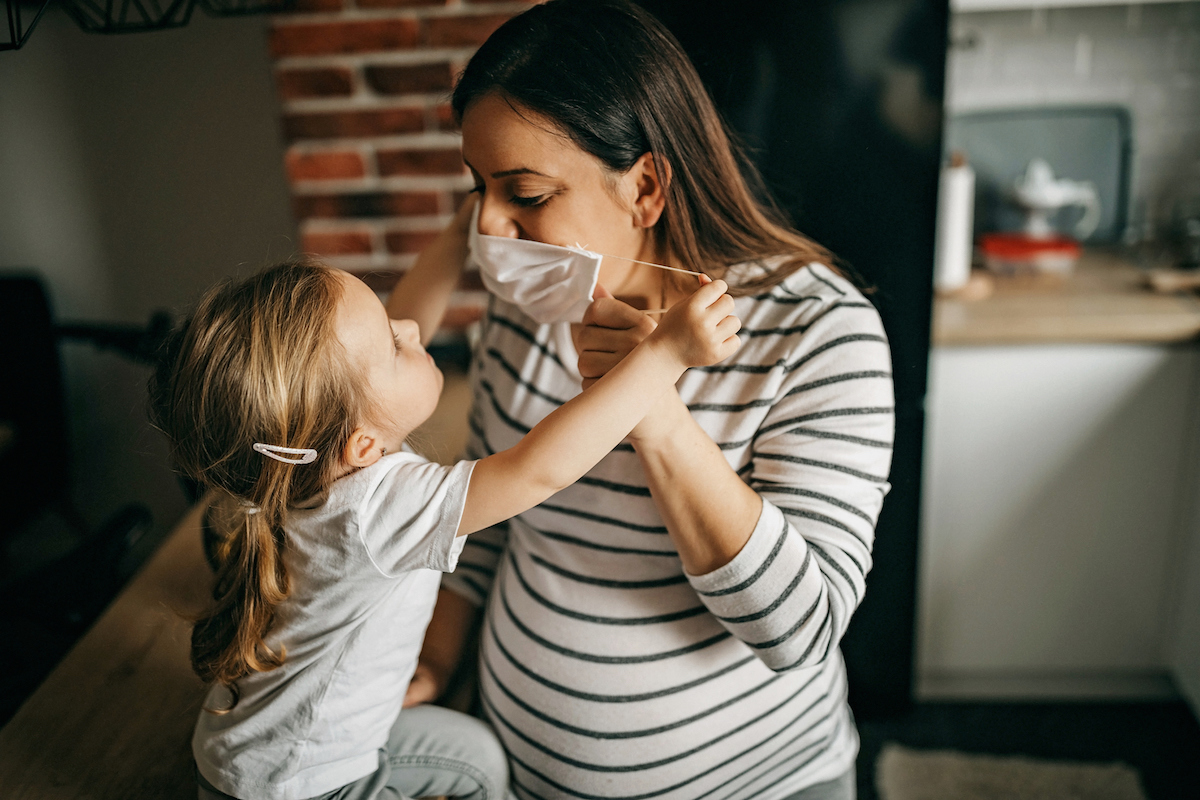<< Back
Why a COVID-19 Vaccine is No Threat to a Woman’s Pregnancy or Fertility

January 06, 2021
Women should have no fears or suspicions about the COVID-19 vaccine’s effect on pregnancy or fertility, despite persistent online misinformation, according to a Hartford HealthCare obstetrician/gynecologist.
Dr. Elizabeth Deckers, who sees patients at the Women’s Ambulatory Health Clinic at Hartford Hospital and is director of quality and safety in maternal health for the system, said women are excluded from selected drug studies because they are considered a “vulnerable population.” That’s where the myths might have started.
In fact, COVID-19 vaccine clinical trials on pregnant women and children are scheduled to begin later this month.
During phase 3 trials conducted last year by the pharmaceutical company Pfizer, the first to earn Food and Drug Administration approval for its vaccine in December, Dr. Deckers said 23 women participating became pregnant. Only one suffered an early pregnancy loss and she was in the placebo group, meaning she did not receive the vaccine itself.
For now, she said, there is no evidence to support claims that the COVID-19 vaccines cause infertility or miscarriage. She noted that more than 50,000 pregnant women in the United States have been infected with the virus during the pandemic and even though their bodies responded by developing antibodies similar to the ones created by the body after vaccination, there has been no evidence of an increase in early pregnancy loss.
“If these antibodies were attacking the developing placenta, we would have seen a lot more problems in these pregnancies,” Dr. Deckers said.
The confusion arises, she said, because there are very minor biological similarities between the spike protein the body creates after vaccination to fight off COVID-19 and syncitin-1, the protein involved in placental development in pregnancy. But the two are not similar enough for the spike protein to launch an immune response to syncitin-1 that would endanger the mother’s ability to carry a baby to term.
“It’s understandable that women would be concerned about getting a vaccine that hasn’t been tested in pregnancy,” Dr. Deckers said. “Women have to balance what’s known about the vaccine and the risks of what could happen if they get severe symptoms of COVID-19 when pregnant. They also have to look at their personal risk of exposure to the virus.”
Vaccines are not new in pregnancy: Pregnant women are routinely inoculated against seasonal flu and hepatitis B and are also offered a vaccine for whooping cough during each pregnancy to protect their unborn baby.
“The type of vaccine you don’t want in pregnancy is a live vaccine. Otherwise, vaccines have a very healthy role in successful pregnancies,” Dr. Deckers said.
Individuals should discuss getting the COVID-19 vaccine with their healthcare provider and consider the fact that pregnant women infected with the virus are at increased risk of severed disease and more likely to be admitted to an intensive care unit and even die. This risk is compounded in women of color.
“Women should be supported in any decision they make, but the risks and benefits all need to be carefully considered,” Dr. Deckers said.